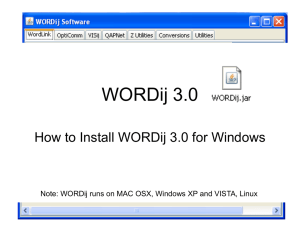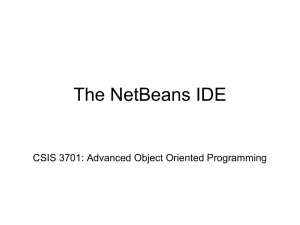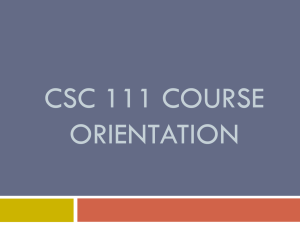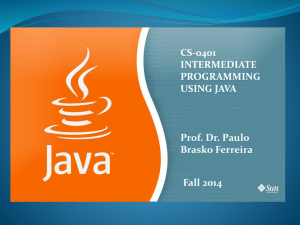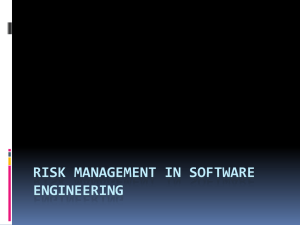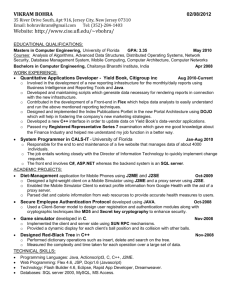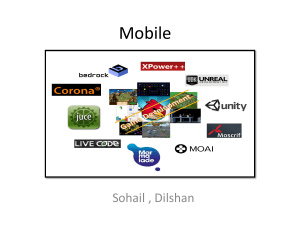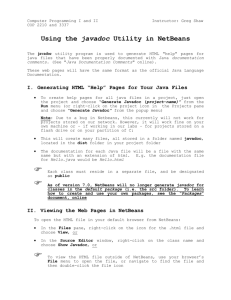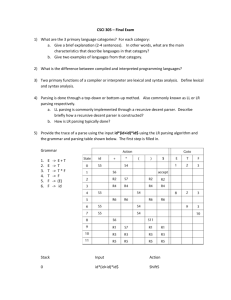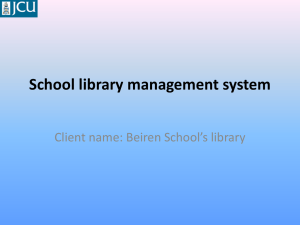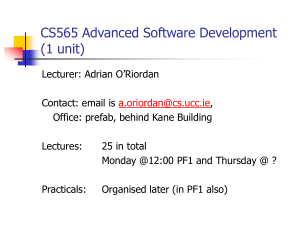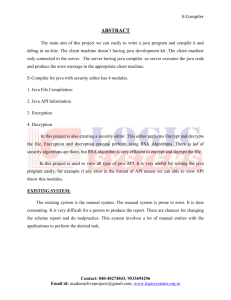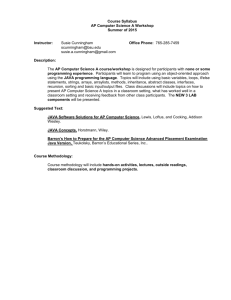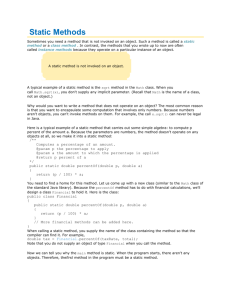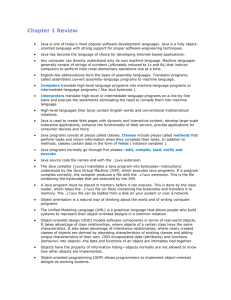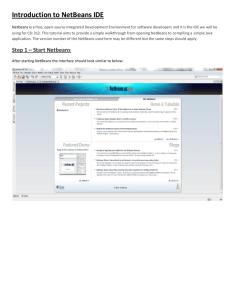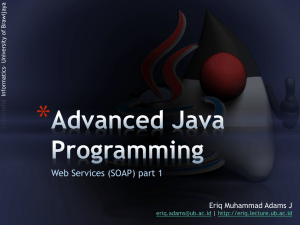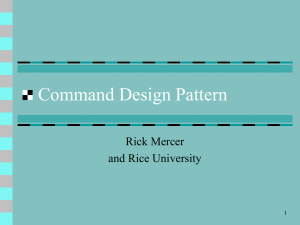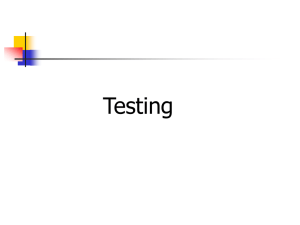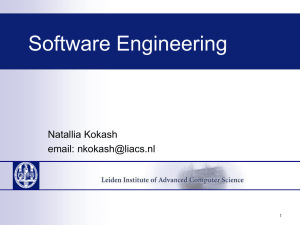Lecture 1.1
advertisement
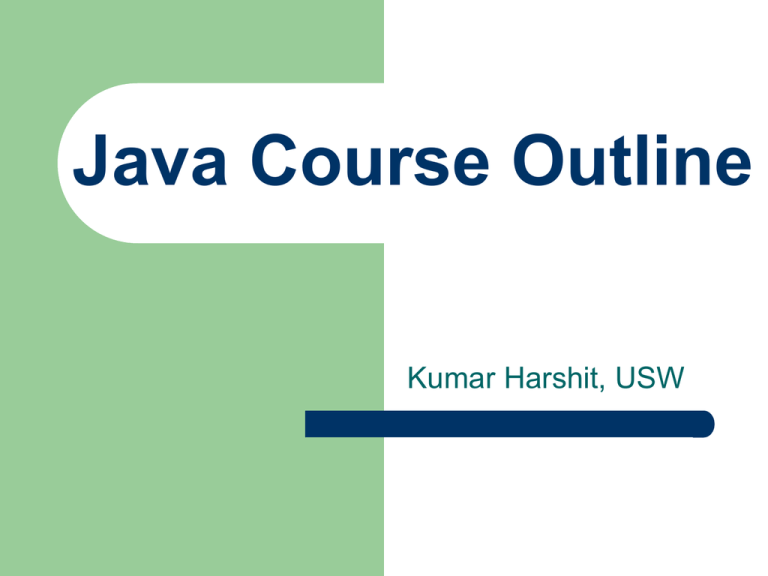
Java Course Outline Kumar Harshit, USW Course Description Teaches students to program using the Java programming language with the help of the Netbeans IDE (Integrated Development Environment). As an introduction, this course gives students: – an overview (도화지 ) of the different components (성분) of the computer – different number systems and its conversions (변환) – Problem-solving strategies (전략) Course Requirements Course Prerequisite – None – Programming Tools J2SE SDK Version 1.5 – NetBeans IDE runs on the J2SE JDK 5.0 (JavaTM 2 JDK, Standard Edition) Net Beans IDE consists of the Java Runtime Environment plus developers' tools for compiling, debugging, and running applications written in the JavaTM language Course Outline Introduction to Computer Programming – Basic Components of a Computer: Software & Hardware – Overview of Computer Programming Languages – Program Development Life Cycle (algorithms) – Number Systems and Conversions Introduction to Java – Java Background – Java Features – Phases of a Java Program Course Outline Getting to know your Programming Environment – My First Java Program: “Hello World!” – Writing programs using a text editor and console – Dealing with errors – Writing programs using NetBeans Course Outline Programming Fundamentals – Dissecting (절개하다) my First Java Program – Java Comments, Statements, Identifiers, Keywords and Literals – Primitive (원시의) data types – Variables – Operators (arithmetic, relational, logical, conditional) – Operator Precedence (앞섬) Course Outline Control Structures – Decision control structures (if, else, switch) – Repetition control structures (while, do-while, for) – Branching Statements (break, continue, return) Java Arrays – Declaring arrays – Accessing array element – Multidimensional arrays Course Outline Working with the Java Class Library – Introduction to Object-Oriented Programming – Classes and Objects – Methods – Casting, Converting and Comparing Objects Course Outline Object-Oriented Programming – Defining your own classes – Declaring attributes (instance variables, static variables) – Declaring methods – The this reference – Overloading methods – Declaring constructors – The this() constructor call – Packages – Access modifiers Course Outline Inheritance – Defining superclasses and subclasses – The super keyword – Overriding methods – final methods and final classes Polymorphism – Abstract classes – Interfaces Course Outline Basic Exception Handling – try, catch, and finally blocks
